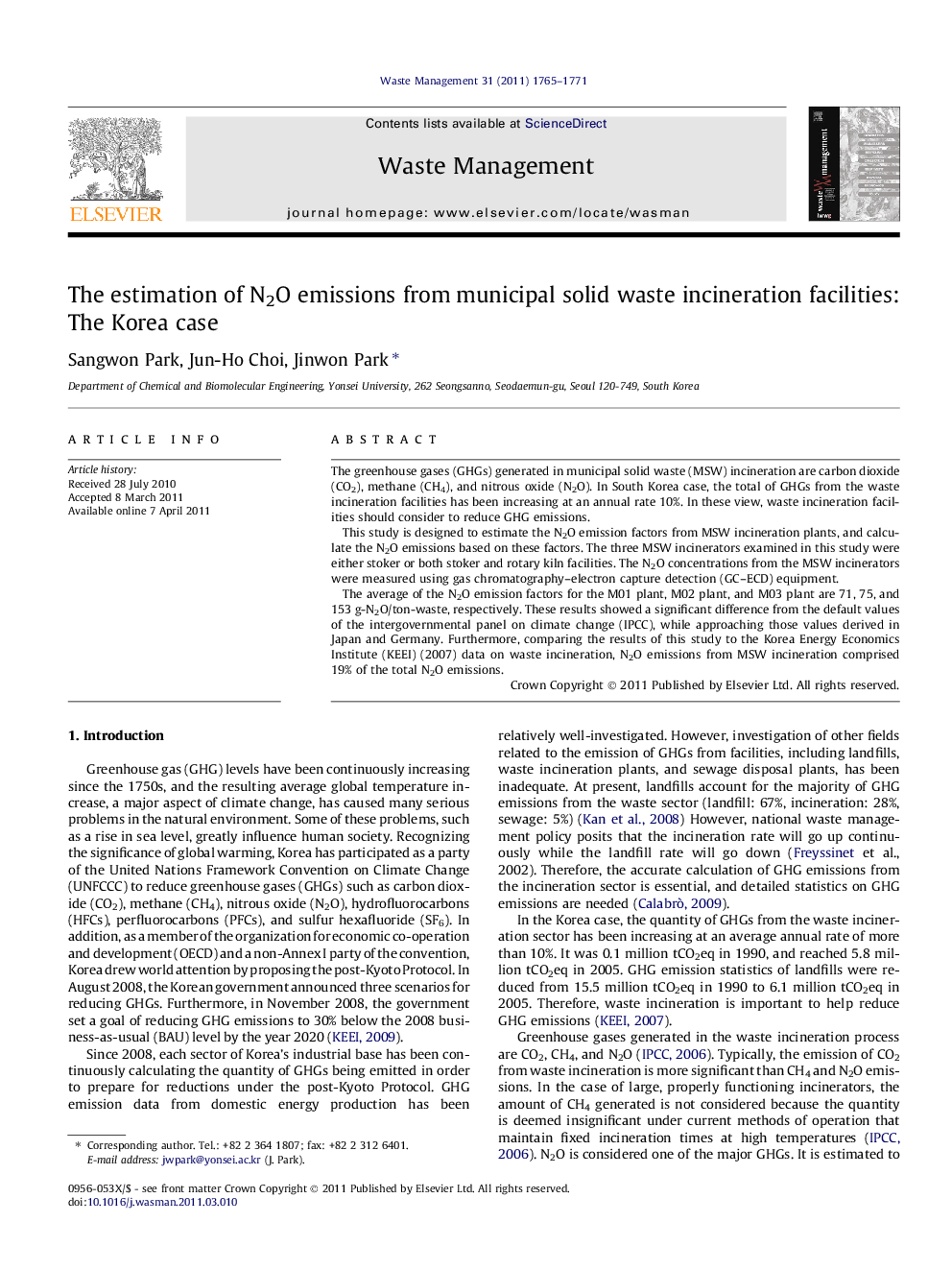| کد مقاله | کد نشریه | سال انتشار | مقاله انگلیسی | نسخه تمام متن |
|---|---|---|---|---|
| 4471895 | 1315048 | 2011 | 7 صفحه PDF | دانلود رایگان |

The greenhouse gases (GHGs) generated in municipal solid waste (MSW) incineration are carbon dioxide (CO2), methane (CH4), and nitrous oxide (N2O). In South Korea case, the total of GHGs from the waste incineration facilities has been increasing at an annual rate 10%. In these view, waste incineration facilities should consider to reduce GHG emissions.This study is designed to estimate the N2O emission factors from MSW incineration plants, and calculate the N2O emissions based on these factors. The three MSW incinerators examined in this study were either stoker or both stoker and rotary kiln facilities. The N2O concentrations from the MSW incinerators were measured using gas chromatography–electron capture detection (GC–ECD) equipment.The average of the N2O emission factors for the M01 plant, M02 plant, and M03 plant are 71, 75, and 153 g-N2O/ton-waste, respectively. These results showed a significant difference from the default values of the intergovernmental panel on climate change (IPCC), while approaching those values derived in Japan and Germany. Furthermore, comparing the results of this study to the Korea Energy Economics Institute (KEEI) (2007) data on waste incineration, N2O emissions from MSW incineration comprised 19% of the total N2O emissions.
Journal: Waste Management - Volume 31, Issue 8, August 2011, Pages 1765–1771